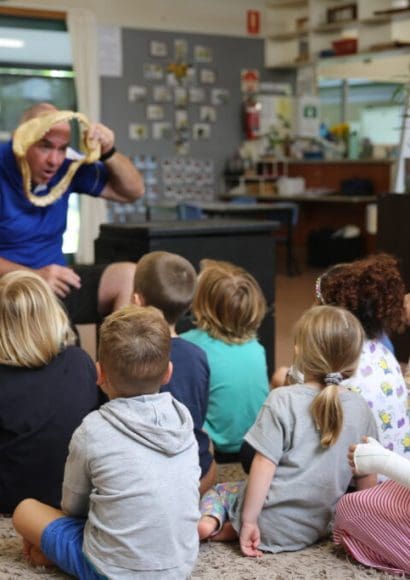
Marine Life Education is a fundamental topic for raising awareness about the importance of oceans and promoting their protection. As we gain a deeper understanding of marine ecosystems—from coral reefs to the ocean’s darkest depths—we can make more informed decisions about how to preserve them. In this article, we’ll explore the most relevant aspects of Marine Life Education, its benefits, key marine ecosystems, and how we can get involved to make a difference.
Contents
What is Marine Life Education?
Marine Life Education is a field focused on teaching about marine ecosystems, their inhabitants, and the connections between oceans and humans. Through this discipline, people gain insight into the oceans, fostering a comprehensive view of the role marine life plays in the balance of our planet.
The main goal is to raise awareness about the need to protect these resources—not only for their beauty or biodiversity but also because of their essential role in climate regulation, oxygen supply, and food security for millions of people.
The Importance of Marine Life Education🐟
It’s easy to think of the ocean as simply an expanse of water, but in reality, it’s an ecosystem essential for life. Here are some reasons why Marine Life Education is vital.
Ecological Importance
Oceans generate over 50% of the oxygen we breathe and act as climate regulators by absorbing approximately 30% of human-produced carbon dioxide. Marine Life Education helps people understand how our actions—such as pollution and climate change—directly affect these processes.
Economic Relevance
The economies of many regions rely on tourism, fishing, and other marine resources. Marine life is the foundation of numerous jobs and generates revenue through various activities. However, overexploitation and lack of regulation put these resources at risk, making it crucial to educate people on how to preserve them.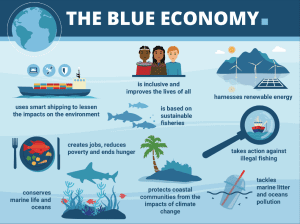
Social and Cultural Benefits
Oceans and their inhabitants hold a special place in human culture and history. From traditional fishing practices to art and literature, the seas have been a source of inspiration and sustenance for many communities. Marine Life Education teaches not only biology and ecology but also the cultural bond we have with the ocean.
Main Marine Ecosystems🐟
Every corner of the ocean is home to unique life and provides essential ecological functions. Below, we explore the main marine ecosystems and why it’s important to protect them.
Coral Reefs
Coral reefs are one of the planet’s most biodiverse ecosystems, known as the “rainforests of the sea.” They are home to approximately 25% of all marine species and play a crucial role in coastal protection by buffering the impact of waves. However, coral bleaching and pollution pose serious threats to their survival.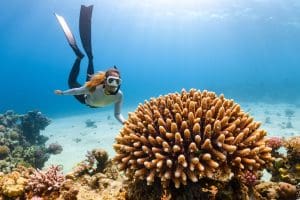
Mangroves
Mangroves serve as coastal protectors and habitats for numerous marine species. They help mitigate storm impact and retain carbon dioxide. Marine Life Education highlights the importance of preserving these ecosystems, as their loss could have severe repercussions for biodiversity and coastal communities.
Deep Oceans
Although deep oceans are less explored, they represent a large portion of marine biodiversity. These depths are home to fascinating creatures adapted to extreme conditions. Studying and protecting these environments is essential, as they may host unknown species and hold the key to developing new medicines and scientific advancements.
Threats to Marine Life🐟
As human activities intensify, threats to marine life increase. Understanding these issues is essential to effectively address them.
Plastic Pollution
Plastic is one of the biggest pollutants in the oceans. It’s estimated that millions of tons of plastic end up in the ocean every year, affecting thousands of marine species. Turtles, fish, and seabirds often mistake plastic for food, leading to fatal outcomes. Marine Life Education aims to raise awareness of this problem and promote sustainable alternatives.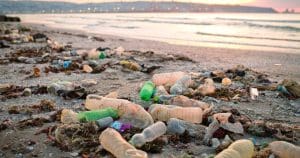
Global Warming
Climate change is altering ocean temperature and acidity, impacting marine life on many levels. From coral bleaching to species migration, global warming poses a significant threat to marine ecosystems. Educating people on this phenomenon is key to creating awareness and reducing our carbon footprint.
Unsustainable Fishing
Overfishing puts many species at risk. Excessive harvesting and destructive methods have caused entire fish populations to decline, impacting not only the ecosystem but also local economies. It’s crucial to teach sustainable fishing practices and emphasize the importance of marine protected areas.
Why is Marine Life Education important for future generations?
Marine Life Education is vital for future generations because it fosters a deep understanding and appreciation of the oceans, which are crucial to life on Earth. Oceans provide more than half of the oxygen we breathe, regulate our climate, and support a vast array of biodiversity that sustains human life.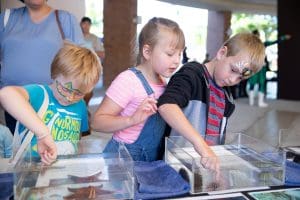
How to Promote Marine Life Education?🐟
Marine Life Education goes beyond classrooms; it can be promoted in various ways. Engaging people and communities in ocean protection is a shared effort that offers many approaches.
On an Individual Level
Everyone can support marine life education through small actions, such as reducing plastic use, opting for sustainably sourced seafood, and being mindful of their environmental impact. It’s also important to stay informed and participate in beach clean-up activities and awareness events.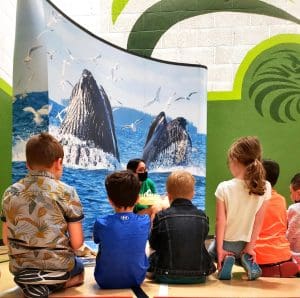
Stay updated on groundbreaking findings in marine science with our article on Recent Discoveries in Oceanography.
In Educational Institutions
Integrating Marine Life Education into school curricula is essential for future generations. Practical activities, such as visits to aquariums or lectures by marine biologists, can inspire students to respect and protect marine life.
Participation in Organizations and Events
There are numerous organizations that work in marine conservation and offer volunteer opportunities. Participating in activities with environmental groups allows people to learn about the real impact of their actions. Events such as World Oceans Day are key opportunities to educate and spread important information.
Discover delicious ways to enjoy fresh seafood with our guide on 5 recipes with Gobio fish.


